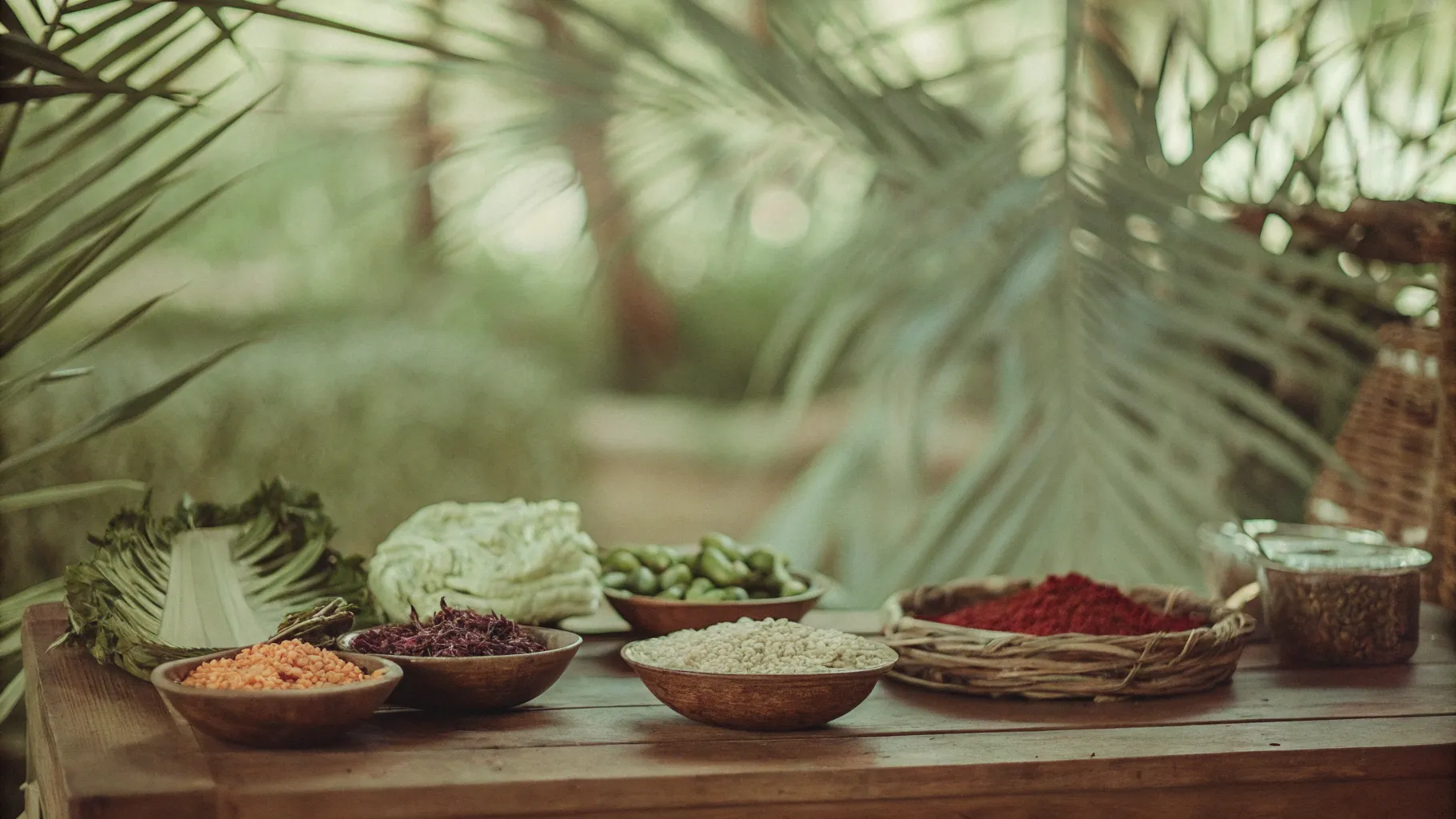Jan 19, 2025
Ayurvedic Nutrition: Balancing Doshas for Optimal Well-being

Ayurveda, which is the traditional Indian medical practice, is based on the principle of eating a healthy and balanced diet to prevent and cure diseases. In this article, we will study the way of eating according to the principles of Ayurvedic nutrition, with an emphasis on the three doshas: Vata, Pitta, and Kapha. Recognizing your primary dosha is the first step in designing a specific dietary plan that caters to your individual needs.
Table of Contents
- Understanding the Three Doshas
- Eating for Your Dosha
- Mindful Eating Practices
- Incorporating Ayurvedic Superfoods
- Balancing Agni (Digestive Fire)
- The Holistic Approach of Ayurveda
- FAQs
Understanding the Three Doshas
According to Ayurveda, food is believed to be therapeutic. The three doshas embody distinct elements and energies operating in our bodies:
- Vata: An airy and restless nature.
- Pitta: A fiery and intense disposition.
- Kapha: A calm and steady temperament.
Every individual possesses a distinct mix of these doshas, and the first step to achieving the best health is to find out which dosha predominates you is.
Eating for Your Dosha
Let's explore the specific dietary guidelines for each dosha type:
1. For Vata
To balance the Vata Type your attention should be on eating warm, heavy foods like the following:
- Cooked grains
- Root vegetables
- Nourishing soups
To a large extent, foods that are extremely cold or raw can contribute to the increase of Vata.
2. For Pitta
Pitta individuals should opt for cooling foods, such as:
- Fresh fruits
- Leafy greens
- Cucumbers
To maintain Pitta in balance, you must reduce the intake of spicy and oily foods.
3. For Kapha
For getting back the kapha balance, choosing light, warm foodstuffs like the following is recommended:
- Steamed vegetables
- Legumes
- Spices like ginger and black pepper
Stay away from heavy and sweet foods because they can negatively impact Kapha.
Mindful Eating Practices
Ayurveda, alongside the practice of mindful eating, is a principle that is also fundamental to health and well-being. The following are the measures you should adopt and include in your daily schedule:
- Eat in a calm, distraction-free environment.
- Chew your food thoroughly to aid digestion.
- Maintain regular meal intervals and avoid excessive snacking.
- Pay attention to your body's hunger and fullness cues.
These practices enlistment will bring better digestion, higher nutrient absorption, and general better pleasure from your meals.
Incorporating Ayurvedic Superfoods
Along with the dosha-related diets and slow eating practice, you can also try adding Ayurvedic superfoods in your regular meals. These are the foods with the highest nutrients that bring you a lot of good things health:
- Turmeric: Known for its anti-inflammatory properties.
- Ghee: A source of healthy fats that supports digestion.
- Triphala: A blend of three fruits that aids digestion and detoxification.
- Ashwagandha: An adaptogen that helps manage stress.
- Tulsi: Known for its immunity-boosting properties.
The use of these elements can help the digestive process, strengthen the immunity system, and increase the amount of energy in the body.
Balancing Agni (Digestive Fire)
Agni or digestive fire is fundamental in Ayurveda. Here are some tips to keep your digestive fire agni strong:
- Avoid overeating and consume freshly prepared meals.
- Incorporate digestive spices like cumin, coriander, and fennel into your cooking.
- Sip warm water throughout the day to support digestion.
The Holistic Approach of Ayurveda
Ayurvedic nutrition includes not only physical health; it is a comprehensive approach of considering your unique constitution, the season, and your environment. By adhering to these principles it is possible to get the deep sense of well-being, strength of immune system, the state of better digestion, and longevity.
Connect with the ancient knowledge of Ayurveda and uplift your physical and mental state through the eating of Ayurvedic food.
FAQs
What is Ayurveda?
According to the Sadhana Sutra, Ayurveda is a traditional Indian medical science, which operates through a comprehensive body-mind-spirit framework, promoting the use of dietary measures, appropriate lifestyle, and medicinal herbs or plant-based medicines.
How can I determine my dosha?
The way to figure out what your dosha is would be either to visit an Ayurvedic practitioner or take an online dosha quiz that is configured to your physical and emotional characteristics.
What are some common Ayurvedic superfoods?
Some of the most widely used Ayurvedic superfoods are the metabolism booster turmeric, the brain nourisher ghee, the stress reliever ashwagandha, and eucalyptus, all of which are recognized not just for their respective health advantages but also for their ability to improve body functions.
Can I follow Ayurvedic principles if I have dietary restrictions?
Ayurvedic beliefs are flexible and can be adjusted easily to fit into what any individual really needs. The ace way to get proper guidance is to consult with an Ayurvedic healer.
If you're interested in enhancing your wellness journey, consider downloading the Nispand: Wellness SuperApp for yoga, meditation, and diet tips.